Give up? It’s a pogo stick!
This summer, Swedish startup Cangoroo plans to launch an app-based pogo-stick sharing system. Several cities will be part of the Cangoroo launch, including Malmö and Stockholm in Sweden, and San Francisco, California.
Described as “an effort to support car-free, sustainable and health options for urban commuting,” Cangoroo’s pogo-stick startup is unlike anything on the market. Renters can literally hop their way to and from work, making it possible for 10,000 jumps to become the new 10,000 steps needed for daily exercise.
As a business owner who works with entrepreneurs, I’m mindful of the many “what ifs?” that startups face, good and bad alike. If your business model was based around a pogo stick, you would definitely take the proper precautions to protect your business.
Want to start a business just as creative as Cangoroo, but ensure your safety from the risks involved? Protect your startup from day one by crossing these items off your legal to-do list:
1. Incorporate the startup or form an LLC
Let’s imagine that Cangoroo isn’t already an incorporated business. If I had to recommend an entity to incorporate a pogo-stick startup, I would advise choosing either a limited liability company (LLC) or corporation structure.
These are not the only two legal entities available to startups. Some startups initially incorporate as sole proprietorships. This affordable entity allows entrepreneurs to be the boss where they are in charge and are able to exercise complete control over the company.
However, if a pogo-stick startup was incorporated as a sole proprietorship, the business would not be considered a separate entity. The sole proprietor (AKA the boss) would be liable for anything that happened to the startup. That could be any kind of unforeseen circumstance, from a customer falling off the pogo stick and injuring themselves to part of the pogo stick breaking after a jump. A sole proprietor would be held fully responsible for the injuries and the broken equipment. They may even face a lawsuit.
Incorporating as an LLC or corporation formation, however, provides entrepreneurs with liability protection. This ensures your personal assets remain separate from the business. In the event you were faced with a lawsuit, it would not impact your personal assets like houses or cars, and you would not be held personally responsible.
As a quick side note, do not forget to prepare the appropriate documents for your entity. If you incorporated as an LLC, you’ll need to draft an operating agreement. A written operating agreement establishes how the LLC is conducted and helps protect your limited liability status. Corporations will need bylaws. These are the corporation’s rules and regulations and include information about how each corporate office functions, how meetings are conducted, and the voting formalities of shareholders.
2. File for trademark protection
Most, if not all, startups have a unique word, phrase, symbol, design, and/or logo associated with the company. This is called a trademark. The mark helps differentiate the startup from other businesses and emphasizes how unique the startup is to the world.
When these creative marks are not registered as trademarks, they risk being plagiarized by outside sources. This is why entrepreneurs must claim their mark as soon as possible by filing a trademark application. Once a trademark has been registered, startups may debut their federally-filed marks publicly. They now claim exclusive rights to the trademark and are considered to be its rightful owner.
How do you file a trademark? First, you need to conduct a search through the United States Patent and Trademark Office (USPTO) and its trademark database. This allows you to see whether or not your desired mark has already been taken or is pending registration. If it’s available, you may begin filing an application and paying an application fee to register the it.
3. Obtain necessary business licenses
The type of business license any startup needs is ultimately determined by a few factors:
Location (including the city and state)
Industry
Entity type
There are a few common pieces of documentation startups need before they can fully operate. It is advised that startups apply for a basic business operation license. This is the most simplified form of a business license. It enables the government to identify and track you for tax purposes and allows you to operate within the city, county, or state you’d like to do business in.
Startups should also file an employer identification number (EIN) application. EINs, while often associated as necessary for hiring employees, offer startups several benefits as a federal tax ID. If you have an EIN, you may also open a business bank account and establish a credit profile.
It would be impossible for me to state exactly which types of business licenses every startup needs to conduct business. Not sure which licenses you still need? Check in with your local Secretary of State to determine which business licenses you need to apply for and are required by the state to run your startup smoothly.
15% Off All Business Cards
VIEW ALL CARDS
$60.05
$60.05
$60.05
$62.55
$60.05
$60.05
$60.05
$60.05
$52.55
$60.05
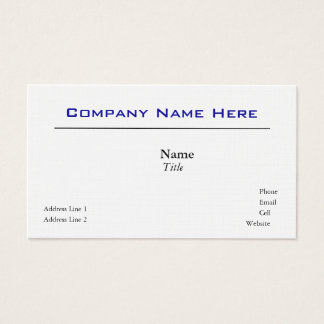


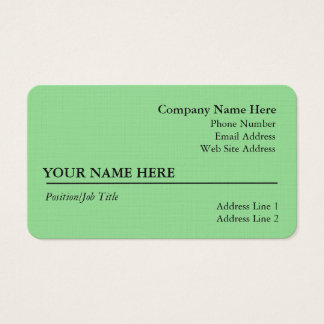
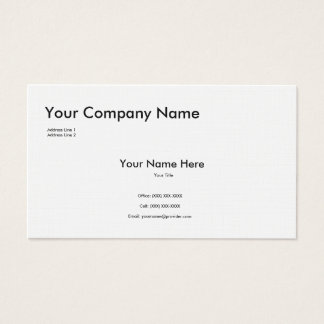
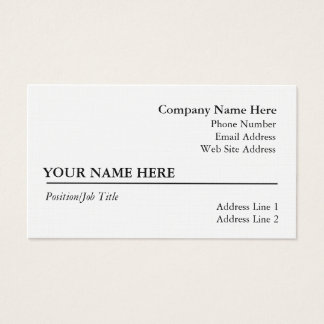


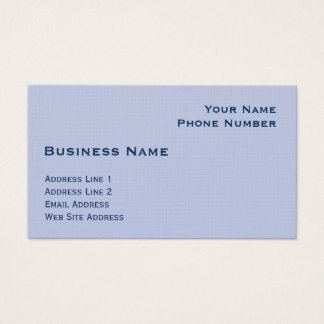
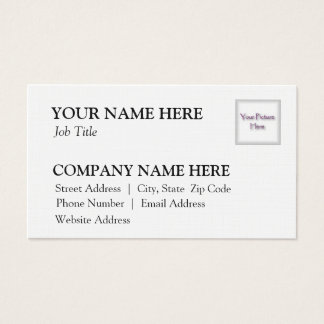
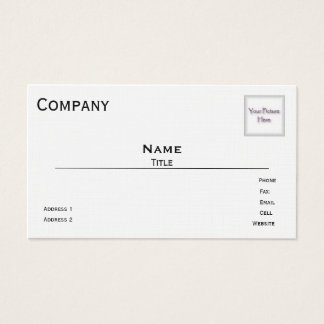
Nice blog. I would like to share it with my friends. I hope you will continue your works like this. Keep up the excellent work. You have a magical talent of holding readers mind. It is something special which cant be given to everyone.
ReplyDeleteWhile using any application if there is any issue that occurs like hacking and the application is processing slow then contactMcafee activates to get the instant solution.